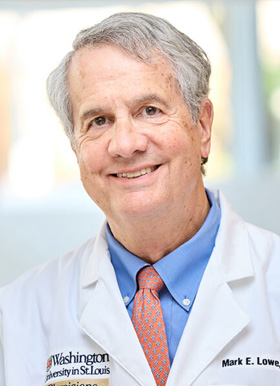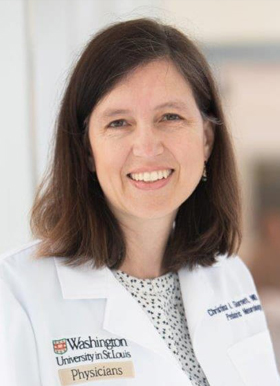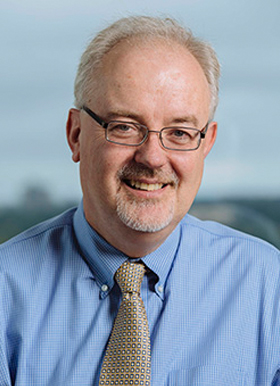
Please join us for the 7th annual symposium hosted by the Institute of Clinical and Translational Sciences.
This year’s theme highlights differences in translational research versus translational science and how projects can be adapted to overcome longstanding challenges along the research pipeline. Highlights include keynote address from Ruth O’Hara, PhD (Stanford University), and presentations and panels providing real-world examples of utilizing translational science principles in research.
Keynote Speaker

Ruth O’Hara, PhD
Director, Spectrum, Stanford Center for Clinical and Translational Research and Education; Senior Associate Dean of Research, Stanford School of Medicine; Lowell W. and Josephine Q. Berry Professor of Psychiatry and Behavioral Sciences, Stanford University
O’Hara is the Senior Associate Dean of Research at the Stanford University School of Medicine and the Lowell W. and Josephine Q. Berry Professor of Psychiatry and Behavioral Sciences. She directs a broad interdisciplinary clinical research program, encompassing cellular models, physiological predictors, and brain and behavioral assays of psychiatric, medical, and cognitive disorders. The core of O’Hara’s research is to investigate how cognitive information processing deficits subserve affective symptoms in psychiatric disorders and interact with key brain networks integral to these disorders. Her body of research has played a key role in shifting the paradigm to defining, assessing, and targeting psychiatric disorders more fully based on their cognitive information-processing deficits and underlying neurocircuitry. Her current research interests are in sleep, pediatrics, and aging.
Presenters

Jacob Greenberg, MD, MSCI
Assistant Professor, Neurosurgery and Orthopedic Surgery; Co-Director, Patient Safety and Quality Improvement, Department of Neurosurgery; WashU Medicine
Greenberg is an Assistant Professor of Neurosurgery and Orthopedic Surgery at Washington University and is also co-director of patient safety and quality improvement in neurosurgery. He completed his undergraduate, medical school, and neurosurgery residency at Washington University before going to the Cleveland Clinic for a complex spine surgery fellowship. His clinical practice focuses on the surgical management of patients with spine disease, particularly cervical and lumbar disease. Dr. Greenberg’s academic focus is on using clinical research methods, data science, and clinical informatics tools to improve outcomes for patients with spine disease. His work is currently supported by the NIH, DoD, as well as a variety of institutional and societal funding sources.

James Krings, MD, MSCI
Assistant Professor of Medicine, Pulmonary and Critical Care Medicine; WashU Medicine
Krings is an Assistant Professor of Medicine in the Division of Pulmonary & Critical Care Medicine at WashU Medicine. He received his medical degree from Stanford University and completed his residency in internal medicine at Northwestern University before returning to his home of St. Louis to complete his Pulmonary & Critical care training at WashU. He is a graduate of multiple programs within the ICTS, including the MTPCI, MSCI, KL2, and Mentored Training in Implementation Science (MTIS) Program. He is currently supported by a K23 for his work on a study entitled “CHEST: A Collaboration with Community Health Centers to Implement SMART for Asthma.”

Mark Lowe, MD, PhD
Professor of Pediatrics, Gastroenterology, Hepatology & Nutrition; Harvey R Colten Professor of Pediatric Science; Senior Associate Dean for Research; Vice Chancellor for Research; Vice Chair, Pediatrics Clinical Affairs and Strategic Planning; WashU Medicine
Lowe is the Harvey R. Colten Professor of Pediatric Science, the Vice Chancellor for Research, and Senior Associate Dean for Research at WashU Medicine. He obtained a PhD in Biochemistry from the University of Pennsylvania and worked at the National Institutes of Health before attending medical school at the University of Miami. He did a Pediatric residency and fellowship in Pediatric Gastroenterology at St. Louis Children’s Hospital before joining the faculty at WashU Medicine. Lowe spent 14 years at UPMC Pittsburgh Children’s Hospital as the Chief of Pediatric Gastroenterology before returning to WashU Medicine in 2017. His research interests are the biochemistry of fat digestion and understanding the mechanisms of chronic pancreatitis in children.

Laura McPherson, DPT, PhD
Assistant Professor, Physical Therapy and Neurology; WashU Medicine
McPherson is a biomedical engineer, neuroscientist, and physical therapist. Her research identifies mechanisms of pathological neural control of movement in the multiple sclerosis and hemiparetic stroke populations and how they relate to motor deficits. Long-term goals are to leverage this information to develop targeted rehabilitation therapies that are personalized to each patient’s unique pathophysiology and to provide sensitive disease monitoring tools. Her research team uses a combination of non-invasive recordings of motor unit population discharge, biomechanical measurements, and computational neuroscience approaches. Her translational science line of research is developing a large-scale open dataset to increase the rigor and efficiency of translational research in her field.

Christine O’Brien, PhD
Assistant Professor, Biomedical Engineering
McKelvey School of Engineering
WashU, MO
O’Brien is an Assistant Professor of Biomedical Engineering at WashU with a secondary appointment in the Department of Obstetrics & Gynecology. Her research is focused on developing and translating non-invasive optical spectroscopy and imaging tools to solve global problems in maternal-fetal health. She obtained her PhD in Biomedical Engineering at Vanderbilt University and completed postdoctoral training at WashU Medicine in the Department of Radiology. She launched her independent research program with projects focused on the development of novel wearable sensors for the early detection of postpartum hemorrhage and novel strategies for preterm birth detection and investigation.

Mary Politi, PhD
Professor; School of Public Health; WashU, MO
Politi is a Professor at the School of Public Health at WashU. Her primary research interests include health communication and shared decision-making. Her work helps patients and the public understand health information, explore what is important to them when making health decisions, and collaborate to make evidence-informed decisions that meet their needs. She also focuses on reducing the financial toxicity (burden of care costs) of health care through insurance decisions and discussions about cost-saving strategies. Politi’s research includes engaging communities with unmet health needs and including them in both research and dissemination efforts. She works to ensure that her research is relevant to end users in clinical and community settings.
Moderators

Christina Gurnett, MD, PhD
A. Ernest and Jane G. Stein Professor of Neurology;
Director, Division of Pediatric and Developmental Neurology; Co-Director, Intellectual and Developmental Disabilities Research Center; Associate Director, Institute of Clinical and Translational Sciences; WashU, MO; Neurologist-in-Chief of St Louis Children’s Hospital
Gurnett runs an active neurogenetics research program that has had continuous NIH funding since 2005, supporting her work to study the genetic basis of musculoskeletal and neurodevelopmental disabilities. Her research reflects her strong commitment to improving equity in genetic testing, as she currently leads a large-scale R01 genome sequencing study of African Americans with adolescent idiopathic scoliosis. Her commitment to community-engaged research is highlighted by her leadership of two National Institutes of Health-funded Rapid Acceleration of Diagnostics-Underserved Population (RADx-UP) projects whose goals were to study communication strategies to increase SARS-CoV-2 testing in schools for children with intellectual and developmental disabilities. As a highly sought-after mentor, Gurnett also co-directs the Precision Medicine Pathway for graduate students and is the co-PI of an R25 providing intensive summer research experiences in pediatric neurosciences for high school students from underrepresented backgrounds.

William Powderly, MD
J. William Campbell Professor of Medicine; Associate Dean for Clinical and Translational Sciences; Director, Institute of Clinical and Translational Sciences; Larry J. Shapiro Director, Institute for Public Health; Co-Director of the Division of Infectious Diseases; WashU, MO
Powderly is currently the Director of the Washington University Institute for Public Health, Director of the Institute of Clinical and Translational Sciences, and Co-director of the Division of Infectious Diseases. He has been actively involved in HIV-related clinical research for thirty years. He has been a member of numerous advisory groups on HIV and infectious diseases for the NIH, the CDC, the Canadian Institute for Health Research, and the European Medicines Agency. His major recent focus has been on translating scientific advances to a wider population to improve public health.

Nancy Sweitzer, MD, PhD
Associate Director, Institute for Clinical and Translational Sciences (ICTS); Director of Clinical and Translational Science Award Translational Workforce Development (CTSA TWD); Director of Clinical Research Training Center (CRTC); Vice Chair of Clinical Research, Department of Medicine; Director of Clinical Research, Cardiovascular Division; WashU Medicine
Sweitzer is a Professor and Vice-Chair for Clinical Research in the Department of Medicine at WashU Medicine. She is also the Associate Director of the Institute for Clinical and Translational Sciences. Sweitzer is an advanced heart failure and transplant cardiologist, and clinical scientist recognized for her leadership and experience in clinical trials. She has led and collaborated on numerous clinical trials sponsored by the NIH and by industry and academic sponsors, including leadership roles in the TOPCAT and PARAGON trials in HFpEF. She has previously served on and chaired the Clinical Trials Review Committee of the National Heart Lung and Blood Institute of NIH. Sweitzer earned her undergraduate degree at the University of Pennsylvania, her doctorate in physiology, and her medical degree from the University of Wisconsin in Madison. She did her post-graduate training in medicine, cardiology, and heart failure and transplant cardiology at Brigham and Women’s Hospital.
| 8:30 am | Attendee check-in |
| 9:00 – 9:20 am | Welcome by ICTS Director William Powderly, MD
School of Medicine Remarks by Mark Lowe, MD, PhD, Vice Chancellor for Research ICTS Update and Future Directions Dr. Powderly will highlight ICTS achievements and discuss future initiatives as the ICTS embarks upon its 18th year of consecutive funding from the National Center for Advancing Translational Sciences. |
| 9:20 – 9:50 am | Introduction by William Powderly, MD
Keynote address: Ruth O’Hara, PhD Director; Spectrum, Stanford Center for Clinical and Translational Research and Education “The Role of CTSAs in the Science of Translation” |
| 9:50 – 10:05 am | Q&A with Dr. O’Hara
Moderated by William Powderly, MD |
| 10:05 – 10:50 am | Research Panel: Transitioning from Translational Research to Science: Real-World Examples
Panelists: Moderated by Nancy Sweitzer, MD, PhD |
| 10:50 – 11:00 am | Break |
| 11:00 – 11:45 pm | Junior investigator flash talks and Q&A
Moderated by William Powderly, MD |
| 11:45 am – 12:30 pm | Research Panel: Harnessing Disruption for Translational Science
Panelists:
Moderated by Christina Gurnett, MD, PhD |
| 12:30 – 1:00 pm | Boxed lunches available |
Visit this page for up-to-date details on the agenda and speakers.